El mundo/ CAROLINA VALDEHÍTA/ Maputo /14/04/2016 09:02
Fueron capturadas por los milicianos de Boko Haram en una escuela cristiana en el norte de Nigeria
No hay noticias tangibles sobre su paradero, aunque se teme que las puedan usar como suicidas a la fuerza.
El hashtag #bringbackourgirls se hacía viral hace dos años después de que personalidades de todo el mundo pusieran su imagen contra el terrorismo. Hasta la primera dama estadounidense, Michelle Obama, se unía a la lucha contra el yihadismo de Boko Haram, sosteniendo una hoja en blanco con una reivindicación: ‘Devolvednos a nuestras chicas’. Fue el momento en el que se dio mayor visibilidad al cáncer que ataca Nigeria: Boko Haram, el mayor grupo terrorista africano y desde el año pasado aliado del Estado Islámico (IS por sus siglas en inglés).
Durante la noche del 14 de abril, 276 adolescentes fueron secuestradas de una escuela de ideología cristiana en la aldea de Chibok, al norte de Nigeria. Cincuenta y siete pudieron escapar esa misma noche, cuando estaban siendo trasladadas a la zona forestal de Sambissa. Otras lo hicieron más tarde y pudieron relatar su horrible experiencia. Su principal rol era ser esclavas sexuales de los sedientos secuaces de Abubakar Shekau, el sanguinario líder del grupo.
Sus días se sucedían entre violaciones y trabajos forzados en el infranqueable bosque de Sambissa, donde eran adoctrinadas en la ‘sharia’ perseguida por el yihadismo internacional. Poco después se difundía el vídeo en el que sus ropas fueron cambiadas por hiyabs musulmanes que tapaban su cabello y cuerpo y dónde reconocían formar parte de la secta terrorista. Abril fue marcado con sangre el calendario y dio paso al comienzo de la peor oleada terrorista en el país.
Si bien desde el surgimiento de Boko Haram al comienzo del milenio sus ataques causaban algunas decenas de víctimas, desde 2011 y hasta ahora, las muertes se cuentan por centenas. El año pasado ha sido sin duda el más mortífero en Nigeria,cobrándose la vida de centenas de personas entre todos los países de la región susceptibles de ser atacados.
Hace dos días UNICEF, la Agencia de Naciones Unidas para la Infancia, publicaba un informe en el que alerta sobre la escalada del uso de niños para llevar a cabo ataques suicidas. Al ser más fáciles de convencer y despertar menos sospechas entre la población, hasta ahora, Boko Haram ha invertido su estrategia durante el último año y ha utilizado a múltiples menores para perpetrar sus últimos ataques en lugares donde la afluencia de gente es mayor, como mercados o lugares de oración. De un 4% en 2014 a un 44% en 2015, Nigeria, Níger, Camerún y Chad son los escenarios de un nuevo terrorismo forzoso. De hecho, varias organizaciones de derechos humanos temen que el destino de las Chibok Girls sea el de inmolarse por la causa yihadista. El informe publicado ayer asegura que el 75% de los ataques son llevados a cabo por mujeres, con lo que la teoría de que las desaparecidas han tomado parte en las masacres de 2015 tiene su fundamento. Pese al terrible derrotero que ha tomado la estrategia de Boko Haram empleando menores para perpetrar los crímenes, el experto en terrorismo internacional James Forest explicó a EL MUNDO que «es un signo de debilidad estratégica» y que el grupo «está destinado al fracaso como insurgencia terrorista».
Prueba de vida
En una entrevista con ‘Bring Back Our Girls’ la asociación de padres que lucha por encontrar el paradero de sus hijas desaparecidas, relataron a EL MUNDO que las medidas del gobierno no están a la altura de sus expectativas: «Al menos tenemos más esperanza que el año pasado. Gracias a las mujeres que han sido rescatadas el año pasado, sabemos que nuestras chicas pueden seguir vivas, aunque es posible que hayan sido coaccionadas para cometer atentados suicidas«, dijo la portavoz Sesugh Akume a este periódico.
Esa esperanza se ha visto respaldada en las últimas horas por el vídeo difundido por Boko Haram a modo de prueba de vida de las jóvenes que aún están bajo su poder. En las imágenes, a las que ha accedido la cadena CNN, 15 de las chicas secuestradas aparecen con un abaya púrpura y una bufanda marrón alineadas delante de una pared amarilla y responden, temerosas, a las preguntas de una voz masculina:»¿Cuál es tu nombre? ¿Te llamaban así en la escuela? ¿De dónde te sacaron?».
Se cree que el vídeo fue grabado el pasado 25 de diciembre de 2015 y fue enviado a los negociadores del Gobierno para ejercer presión. Ahora, esos negociadores han decidido mostrarlo a varias de las familias para darles algo de esperanza sobre el estado de sus hijas.
Al final de la grabación una de las secuestradas, Naomi Zakaria, hace una petición al gobierno nigeriano para que intensifique sus esfuerzos negociadores. «Estoy hablando el 25 de diciembre de 2015, en nombre de todas las chicas de Chibok y todas estamos bien», asegura.
Aunque el ejecutivo mantiene una copia de las imágenes, las autoridades nigerianas ya han advertido de que no pueden confirmar con toda certeza la autenticidad del vídeo.
Vivas, pero sanguinarias
El actual presidente de Nigeria, Muhammadu Buhari, quién ganó las elecciones en marzo del año pasado, utilizó como herramienta propagandística el secuestro de las chicas. Prometió por activa y pasiva que las encontraría y acabaría con el terror de Boko Haram. Sin embargo, cuando se cumplió un año de su desaparición el ejecutivo dijo públicamente que «harían lo que estuviera en su mano para encontrarlas» pero lo más probable es que todas ellas estuvieran muertas. Meses después, con la liberación de varias decenas de personas de los bastiones de Boko Haram, algunas mujeres daban pistas sobre el paradero de las niñas.
Las testigos aseguraban que las niñas habían sido forzadas a contraer matrimonio con los combatientes, que habían sido convertidas al Islam y obligadas a entrenar a las nuevas mujeres que llegaban al grupo. «Crueles y sanguinarias» eran los apelativos que se les daban el pasado verano. Quizá como método de supervivencia, quizá por un eficaz lavado de cerebro por parte del grupo terrorista. Hace menos de un mes dos mujeres fueron detenidas en la frontera de Camerún, donde habían llegado con la intención de inmolarse. Una de ellas dijo ser una de las Chibok Girls, una alegación que resultó falsa cuando las autoridades policiales camerunesas lo comprobaron. En cualquier caso, los padres de las víctimas siguen reivindicando a Boko Haram y al gobierno que sus hijas les sean devueltas.
AI reclama la liberación de todas las mujeres y niñas
Por su parte, la organización de defensa de los derechos humanos Amnistía Internacional (AI) reclama la liberación, no sólo de las chicas de las Chibok Girls, sino de todas las mujeres y niñas secuestradas por Boko Haram. «Somos pocos los que podemos concebir realmente el sufrimiento de unos padres y madres que llevan dos años sin ver a sus hijas», ha dicho el responsable de AI en Nigeria, M. K. Ibrahim. «Las niñas de Chibok simbolizan a todos los civiles cuyas vidas ha destrozado Boko Haram».
La organización ha hecho un llamamiento al gobierno para que intensifique sus esfuerzos en las tareas de rescate de civiles y de que «los culpables de infringir este sufrimiento» sean llevados ante la justicia. «El gobierno de Muhammadu Buhari debe hacer todo lo legalmente posible para poner fin a la agonía de los padres y madres de las niñas de Chibok y de todas las personas secuestradas. Debe adoptar más medidas para devolvernos a nuestras niñas, y garantizar la protección de los civiles en el noreste del país y el acceso a la educación de todos los niños y niñas de la región», pidió M. K. Ibrahim. En este aspecto, algunas fuentes gubernamentales han explicado a AI que el gobierno planea crear centros de rehabilitación para ex integrantes de Boko Haram arrepentidos, a lo que la organización se muestra reticente si se trata de conceder amnistías a «perpetradores de crímenes de derecho internacional».
Fuente de la Noticia: http://www.elmundo.es/internacional/2016/04/14/570e5dc3e2704ebf478b4656.html
Imagen: http://e03-elmundo.uecdn.es/assets/multimedia/imagenes/2016/04/14/14606183269528.jpg
Socializado por:
Dulmar Pérez. Candidata al Doctorado Pedagogía, Magister en Docencia Universitaria, Especialista en Docencia para la Educación Inicial. Ha publicado artículos internacionales y nacionales PEII-A Investigadora adscrita al CIM. Coordinadora CNIE en Barinas.
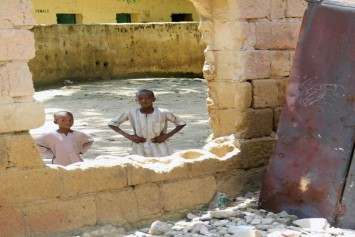
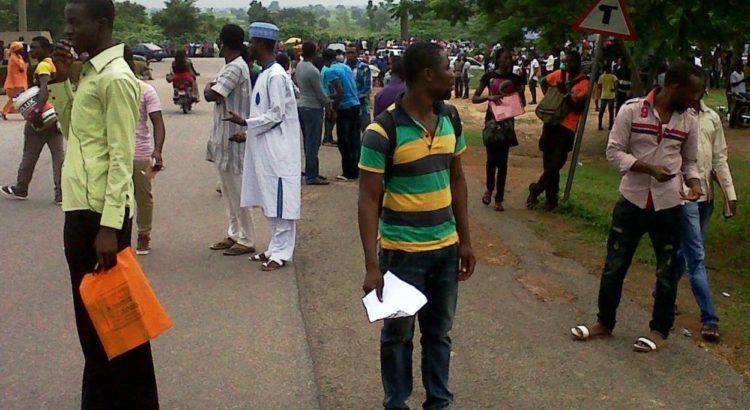
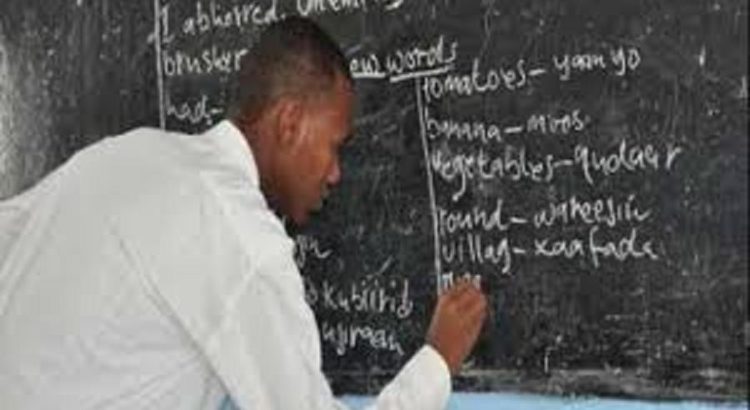
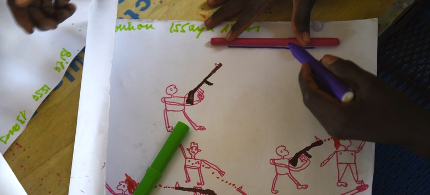


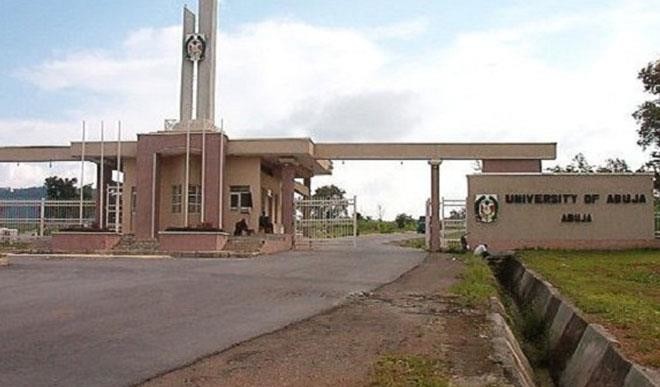






 Users Today : 190
Users Today : 190 Total Users : 35459785
Total Users : 35459785 Views Today : 350
Views Today : 350 Total views : 3418322
Total views : 3418322